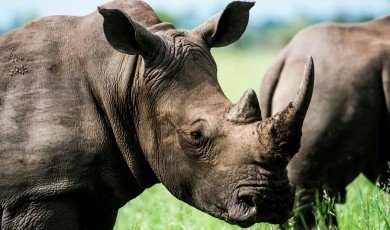
Animal protection is at a turning point, driven by innovative strategies, persistent challenges, and shifting global trends. As the movement evolves, it leverages interdisciplinary approaches, from technology to policy reform, while navigating cultural and economic complexities. Collaborative spaces like coworking environments are fostering new ideas and partnerships to advance the cause. This article explores how animal protection is being rethought, highlighting key strategies, obstacles, and emerging trends shaping a more compassionate future.
Strategies Redefining Animal Protection
Modern animal protection relies on a blend of advocacy, science, and policy to create lasting change. One key strategy is data-driven advocacy. Organizations like the Humane Society International use scientific research to expose inhumane practices, such as cramped conditions in factory farms, which house over 70% of livestock globally, according to the FAO. These findings fuel campaigns that influence public opinion and policy, like the EU’s cage-free egg mandate.
Technology is another game-changer. Drones and AI monitor illegal activities, such as poaching, with groups like WWF reporting a 20% drop in illegal hunting in protected areas using real-time surveillance. Plant-based and lab-grown meat, pioneered by companies like Beyond Meat, reduce reliance on animal agriculture, with the alternative protein market growing 12% annually, per a 2024 Bloomberg report. Coworking spaces play a vital role here, bringing together startups, scientists, and activists to collaborate on innovations like sustainable food systems or wildlife tracking tools.
Grassroots engagement remains critical. Platforms like X amplify campaigns against practices like fur farming, with viral posts driving policy shifts, such as Ireland’s 2021 fur ban. Community-driven initiatives, often organized in coworking hubs, foster local activism, from organizing protests to creating educational programs. These spaces provide affordable access to resources, enabling small NGOs to collaborate with tech experts or policymakers.
Challenges in the Evolving Landscape
Despite progress, animal protection faces significant hurdles. Cultural differences create friction, practices like whale hunting in certain countries are defended as tradition, clashing with global welfare standards. Data from the World Animal Protection shows that 60% of surveyed nations lack comprehensive animal welfare laws, complicating international alignment.
Economic resistance is another barrier. Industries like meat production, valued at $1.3 trillion globally, argue that welfare reforms increase costs. Yet, consumer trends suggest otherwise, 68% of U.S. shoppers prefer ethically sourced products, per a 2024 Nielsen study. Bridging this gap requires innovative solutions, like subsidies for humane farming, often brainstormed in collaborative coworking environments where economists, farmers, and advocates co-create policies.
Enforcement is a persistent issue. Underfunded regulatory bodies struggle to monitor compliance, with only 15% of reported animal welfare violations in the U.S. leading to penalties, according to ASPCA data. NGOs often fill this gap, but their resources are stretched thin. Misinformation, spread by industries claiming “humane” practices, further muddies the waters, requiring clear, evidence-based counter-narratives.
Global Trends Shaping the Future
Several trends are reshaping animal protection. First, the rise of alternative proteins is reducing demand for traditional livestock farming. In 2024, plant-based meat sales grew 15% in Europe, per Euromonitor, driven by consumer demand for sustainable options. Coworking spaces are hubs for these innovations, hosting food tech startups and researchers working on scalable solutions.
Second, technology is enhancing conservation. AI-driven predictive models identify at-risk species, while blockchain ensures transparent supply chains for ethical products like cage-free eggs. These advancements are often developed in collaborative tech hubs, where coworking environments foster cross-disciplinary partnerships.
Third, youth activism is surging. Gen Z, making up 35% of animal rights advocates per a 2024 survey, uses platforms like X to drive change. Campaigns against cosmetic testing on animals, now banned in 44 countries, owe much to their digital activism. Coworking spaces support this trend by providing young activists with access to mentors, tech tools, and networking opportunities.
Finally, global policy alignment is gaining momentum. The OIE’s universal welfare standards, adopted by 180+ countries, promote consistent guidelines. However, implementation lags in low-resource regions. Collaborative efforts, often coordinated in coworking hubs, help translate these standards into local contexts, ensuring practical application.
Opportunities for Innovation and Collaboration
Rethinking animal protection requires bold innovation. Coworking spaces are proving invaluable, offering flexible environments where NGOs, tech developers, and policymakers can collaborate. For example, a coworking hub in London recently hosted a hackathon that developed an app for reporting animal welfare violations, now used in multiple countries. These spaces foster creativity, allowing diverse stakeholders to tackle issues like funding shortages or cultural resistance.
Education is another opportunity. Programs teaching animal sentience in schools, like those by the RSPCA, are shaping compassionate mindsets. Digital campaigns, amplified through platforms like X, reach millions, with 40% of animal welfare petitions in 2024 originating online. Collaborative hubs support these efforts by providing spaces for campaign strategizing and content creation.
Public-private partnerships are also key. Governments and corporations are increasingly funding humane initiatives, such as cage-free farming transitions, with $500 million invested globally in 2024, per industry reports. Coworking environments facilitate these partnerships, bringing together stakeholders to align goals and resources.
The Path Forward
The future of animal protection hinges on integrating strategies, overcoming challenges, and capitalizing on global trends. Strengthening international cooperation, leveraging technology, and engaging communities are critical steps. Coworking spaces will continue to play a pivotal role, fostering innovation and collaboration across sectors. By rethinking approaches, combining science, policy, and grassroots efforts, the movement can address systemic issues and create lasting change.
Conclusion
Animal protection is evolving through innovative strategies, from AI-driven conservation to policy reforms and youth-led advocacy. While challenges like cultural differences and economic pressures persist, trends like alternative proteins and global policy alignment offer hope. Coworking spaces are catalyzing this progress, uniting diverse voices to reimagine solutions. By supporting these efforts, individuals and organizations can help build a world where animals are treated with dignity and respect.








